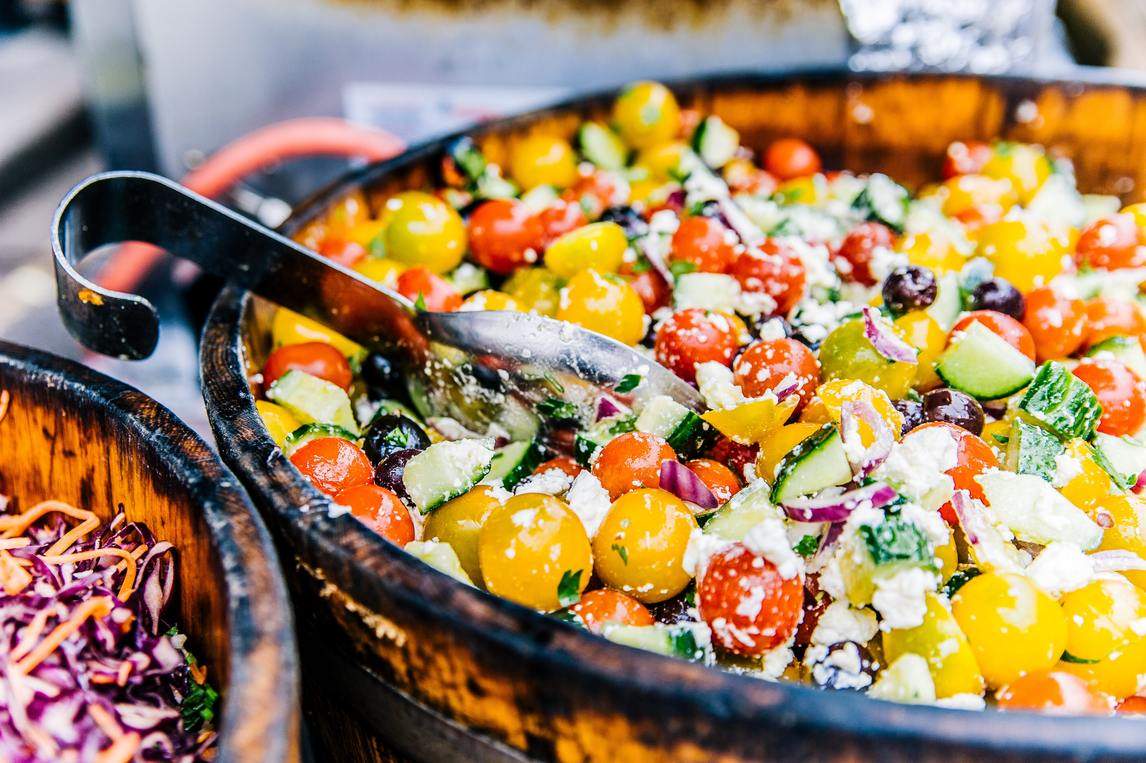
Including lots of healthy vegetables in your meals throughout the day is a key part of clean eating, just as it is an important part of any truly healthy eating plan or lifestyle.
As part of your clean eating lifestyle you should include vegetables with each of your 5 -6 meals during the day, with the exception of breakfast where fresh fruit (strawberries, blueberries, or grapefruit) is an option to accompany your protein.
The Center for Disease Control and Prevention recommends eating 9-13 servings of fruits and veggies per day to maintain optimal health. Most people in the Western world don’t eat anywhere close to that.
Apart from those all-important greens we talk about, strive to include more veggies of all types into your diet. There are so many to choose from and plenty of variety, so there is no reason not to be able to keep it interesting.
I’ve got some great recipes and ideas for you that will help you see veggies in a whole new light. From roasting them, to making rich, thick “creamy” soups, to homemade salsa… you’ll soon start to discover how truly delicious veggies can be, when prepared with just a little TLC.
If you’ve never been big into veggies before, I can relate! Vegetables were never among my favorites, but now I have fun exploring new and interesting ways to enjoy them. I’ve learned how to transform vegetables into an enjoyable culinary experience. I’ve come to really have a good time getting adventurous with preparing them. You can too.
Once again, it comes down to re-framing the way you think about food. Get creative, use your imagination. Find new ways with vegetables!
Think oven roasted eggplant, broiled tomatoes, sauteed mushrooms as a healthy side dish or snack.
This is real food. Learn to love it. It will love you back. Savor the flavors of good, wholesome nutritious food.
Almost any vegetable becomes amazing when you oven roast it – try drizzling with a bit of balsamic vinegar to kick it up a notch if you like.
Vegetables are a rich source of vitamins and minerals that are essential to heart and immune health as well as healthy skin, bones, and vision. Vegetables are also rich in fiber, a nutrient that supports a healthy digestive tract and keeps us feeling full and satisfied throughout the day.
Where ever possible, try to stick with fresh veggies, or at least frozen, and avoid those in cans as they often have added ingredients, especially salt. If you must use frozen or canned vegetables, as always, check the ingredients on the label. If there is anything added (like salt for instances, or ingredients with words you can not pronounce), choose fresh instead.
As part of a clean eating lifestyle, you should have vegetables with every meal. Better yet, try to fill half your plate with veggies. They add volume and tons of nutrition to your meal without a lot of calories.
